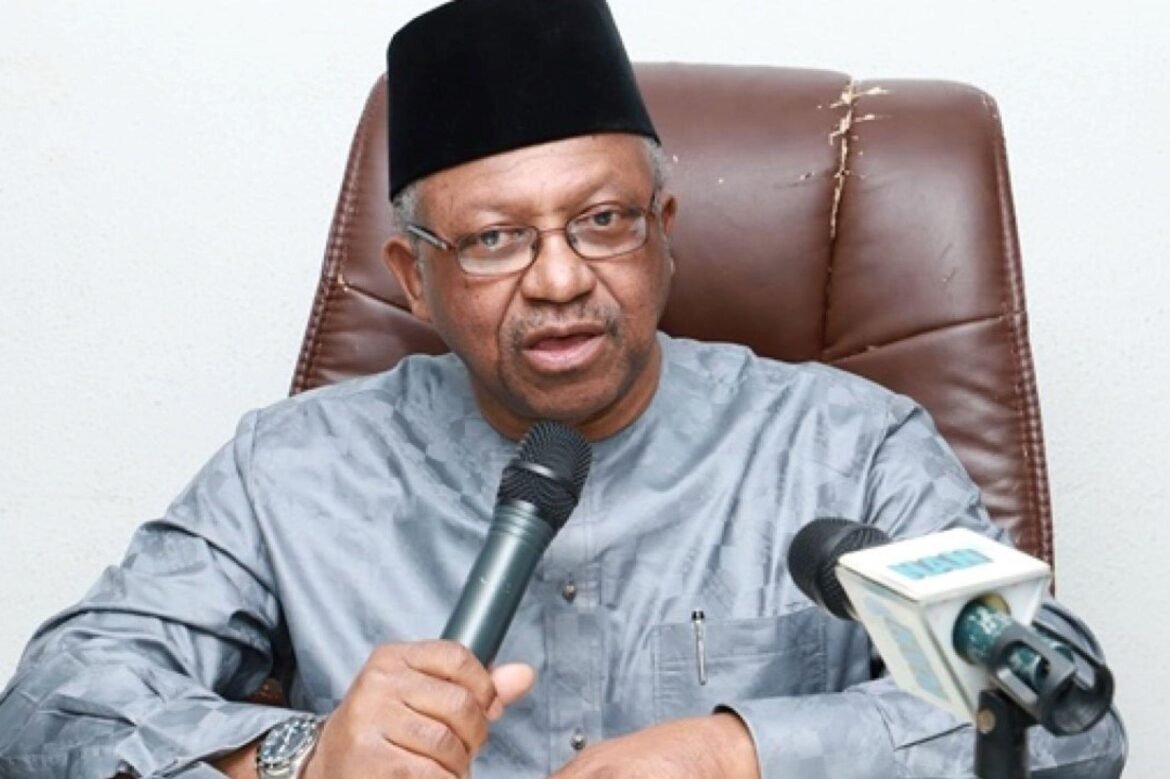Narratives of hospitals and clinics rejecting patients who are in critical condition is not new in Nigeria, but it is deserving of our solemn attention, focus and a solution.
Not one more Nigerian has to die before we end the reprehensible practise.
Good people and decent societies would consider the rejection of critically-ill patients under any pretence by medical establishments as despicable.
But in Nigeria, this evil is gaining ground, causing avoidable loss of lives and a lifetime of hurt to our families.
Places of healing, when they become a pathway to a morgue, are costly to the society.
When healers become killers, the fabric of confidence in an important institution is irretrievably broken.
In place of the trust that the medical profession should offer and enjoy, we are left with the suspicion that our doctors and nurses are modern-day Merchants of Venice who may shut the door if delivering treatment does not suit their business algorithms.
On September 10, 2020, I lost a close family friend to what is, from all indications, avoidable death.
The deceased was very close to me and the hurt of his death will linger.
Yinka had stayed with my family when we were younger.
We lived in the same room, attended the same school and followed nearly the same daily routine.
Our dads were good friends.
A mechanical engineer and factory manager in Ota, Ogun State, Yinka nurtured a dream of starting his own manufacturing outfit, a dream that has now been aborted by cold-blooded doctors and nurses who refused to save his life at his moment of most dire need.
The man, in his early 50s, returned home on the fateful day in an exuberant spirit, had his dinner as usual and played with his family until everyone retired.
During the night, he started snoring heavily. The wife could not get him to respond, and rallied neighbours.
As ambulatory services are unreliable and often unavailable, Yinka was put in a car and they set out for the nearest medical facilities.
When doctors or medical facilities lock their gates on patients whose lives are seriously in danger, they display complete ignorance of one of the basic ethics of their profession
He was turned away at two private hospitals.
On the way to the general hospital, Yinka gave up the ghost.
The man died.
The hospitals did not offer to provide first aid, nor check the patient to save his life; they flatly denied treatment once they saw his condition.
Giving an account of the death, my brother said it was not uncommon for hospitals to deny a patient treatment if they thought the victim may die under their care.
This fact was corroborated by a friend, who provided further insight.
“If the patient is assessed by the medical team on duty to have very low chances of survival, their first instinct is to avoid taking risks that could label the hospital as a place where patients die.
In an attempt not to expose their inadequacies, they turn down any request to treat a patient that has need for the equipment that they lack.”
Refusal of medical treatment when payments cannot be made in advance has been around for decades, even at government-owned hospitals.
It is unethical, but we have accepted and lived with it.
It was a surprise to learn that hospitals are allowed to have a rating system for those they will admit, and that they can decline an emergency treatment on their own.
Another friend narrated how her employee suddenly took ill and died at the emergency unit of a major teaching hospital in Lagos before he could be treated.
READ ALSO: Ngige, Nigerian Doctors Must Stay
On arrival, hospital staff demanded a deposit of N500,000, but the company had just N150,000 with them.
“While still in the ambulance outside the Emergency Unit, the oxygen he was on was almost exhausted at the time, I told them to admit him and that in the morning we would pay the balance.
“I called a friend who was around Ikeja at that time to help me arrange for 100k that night (which would be repaid in the morning) thinking I could persuade them to admit him.
I thought seeing the desperation on our faces to save the life of a loved young man in his early 30s would move them to action.”
The hospital refused to treat the patient except the full amount was paid.
The patient’s friends decided to move him to the leading teaching hospital. Within hours, the man was dead.
These stories illustrate how precious lives are wasted every day, all over Nigeria by mean-spirited hospital staff, who have lost sight of the reason why hospitals exist to start with.
It should be criminal for hospitals to reject patients at emergency units. Even criminals deserve medical treatment and that is not the case.
The Nigerian Police has tried to deter the rejection of those with gun wounds by hospitals, but it cannot enforce the rules.
Hospitals have pointed to a deeply corrupt law enforcement system as the reason for rejecting those with gun wounds.
They claim the police often try to use the system to milk the hospitals, especially if a patient who may be a criminal escaped.
It should be the responsibility of the police to secure patients who are a risk to society, not the hospitals; but what we are experience is a collapse of multiple institutions.
Another excuse frequently offered by hospitals for refusing treatment is the huge unrecoverable debts from patients they have treated.
While it is true that private hospitals are a business and must run profitably to pay staff, buy equipment and keep afloat, they serve a higher purpose in the society, and will sometimes incur losses.
Some professions do not, and cannot, operate for profit motives alone.
Among them are journalism, teaching, social services, legal and medical.Any reason given to refuse treatment to a dying man is a weak and ludicrous excuse.
All over the world, the acceptable ethics of the medical profession is to save lives. The standard practise is “treat first, ask questions later.”
In the United States, under the Emergency Medical and Treatment Labor Act, public and private hospitals are prohibited from denying patient care in an emergency.
The Nigerian Police has tried to deter the rejection of those with gun wounds by hospitals, but it cannot enforce the rules
Healthcare cannot even be delayed because of lack of ability to pay.
Health facilities are also prohibited from unnecessary transfer to prevent dumping patients who cannot pay on other hospitals.
In other countries with national health systems, such as Canada, UK, Sweden, Japan, Israel and Germany, the practice in Nigeria is even unheard of.
For citizens and residents, healthcare is guaranteed. For foreigners, some types of care are not free, but treatment will not be denied.
Some treatments carried out under the UK National Health Service are free to all people, including overseas visitors.
Penalty for not paying a hospital charge to an alien is usually the denial of a visa for future immigration application.
The ethics is that life is precious and that is the moral that Nigeria has not grasped, 60 years into independence.
We treat human lives as those of chimps.Life is not measured in currency.
Medical professionals who are properly wired will try to save lives first before asking any other questions.
When doctors or medical facilities lock their gates on patients whose lives are seriously in danger, they display complete ignorance of one of the basic ethics of their profession.
Any institution that aims to prove its worth by how many people walked out alive has to be judged by how many it stopped from walking in.
The hospitals that denied Yinka treatment have blood on their hands.
In a society as religious as Nigeria, the people who caused his death may gone on to their places of worship as if they did nothing wrong.
Not only have they offended God, they have increased the number of fatherless children and widows by one.
A breadwinner is gone and hardship has been elevated in another Nigerian family.
His children have lost the chances of a normal upbringing.
A friend, who trained as a doctor in Nigeria but practices in Canada, once told me human life is not so easy to lose, except in Nigeria. His theory is proven.
Before we dare say Black Lives Matter anywhere in Nigeria, let’s consider that all Nigerian lives are black lives.
Lives matter at the doorsteps of all hospitals.








